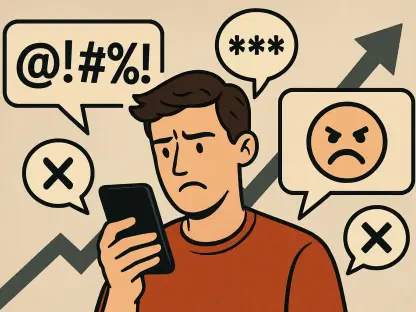In an age where information spreads at lightning speed, social media can often become a hotbed for misinformation. Recently, a viral video surfaced claiming to show a recent solidarity march in Rabat, Morocco, supporting both Palestine and Lebanon. However, a comprehensive investigation by NewsMobile reveals these claims to be misleading and inaccurate. Through meticulous research and fact-checking, the actual context of the event has been uncovered, providing a crucial corrective to the widespread false narrative.
The Proliferation of False Information on Social Media
Tracing the Origin of the Video
The video in question depicts a large-scale protest. While some social media posts claim it represents recent solidarity with both Palestine and Lebanon, NewsMobile’s investigation tells a different story. Using digital tools such as reverse image searches, the team traced the original posting of the video back to October 15, 2023. The caption associated with this initial post indicates that the protest was in support of Gaza, not Lebanon. This discovery sheds light on how easily information can be misinterpreted or intentionally misrepresented on social media platforms.
Misinformation often thrives on the misrepresentation of facts. Although the video does show a real event—a significant protest in Rabat—it was inaccurately labeled. The research found supporting evidence in an article from “The Times of Israel,” which described how tens of thousands marched in Rabat on the same date to show solidarity specifically with Gaza amidst ongoing conflicts. By aligning the video with this credible report, NewsMobile clarified that the protest was not about Palestine and Lebanon simultaneously, but focused solely on Gaza. This distinction underscores the importance of context in understanding social media content accurately.
The Role of Social Media in Spreading Misinformation
Rapid Dissemination Through Platforms
Social media platforms are potent tools for spreading information, both accurate and misleading. Posts claiming the march’s broader solidarity reach spread quickly, amassing thousands of views and shares. This rapid dissemination highlights the necessity for critical evaluation by the public before accepting shared content as truth. When misinformation spreads unchecked, it can quickly shape public opinion, often without regard to the facts. This phenomenon was clearly observed with the Rabat protest video’s viral spread.
Fact-checkers like those at NewsMobile use various methods to debunk false information. Techniques such as reverse image search and cross-referencing credible news reports are crucial in verifying the authenticity and context of digital content. These methods played an essential role in debunking the false claims surrounding the Rabat solidarity march. By employing these verification techniques, NewsMobile set a precedent for how misinformation should be tackled in the digital age. Through these efforts, the public can be better informed and less likely to fall prey to misleading narratives.
Credible Reporting and Contextual Integrity
Aligning with Established Reports
Verification processes led the team to establish that while the video is authentic in showing a protest, the claims about its context were manipulated. Aligning the findings with established news reports ensures that the actual narrative is maintained, preventing the distortion of public opinion. The consistency between the video and the “The Times of Israel” article validated the corrected context and further discredited the misleading social media claims. This alignment is critical in maintaining the integrity of information shared in public discourse.
The Nuances of Verification
The intricate process of verifying such content involves more than just technological tools. It also requires a deep understanding of the geopolitical landscape. NewsMobile’s diligent approach to cross-reference information with reputable sources underscores the importance of maintaining contextual integrity in reporting. The geopolitical nuances of the Israel-Gaza conflict added layers of complexity to the verification process, which NewsMobile navigated successfully to provide an accurate portrayal of the event. This meticulous method exemplifies how comprehensive fact-checking can defend against the propagation of false information.
Implications of Misinformation in Geopolitical Contexts
Escalating Tensions Through False Narratives
Misleading information, especially in volatile geopolitical contexts, can have significant repercussions. False claims about international support can exacerbate existing tensions and contribute to a skewed public perception. This incident shows how easily misinformation can spread and the potentially damaging effects it can have on international relations. When misrepresented events are accepted as fact, they can foster misplaced outrage, unjustified actions, and strained diplomatic relations.
Addressing misinformation involves not just debunking false claims but also promoting media literacy among the public. Educating individuals on how to critically assess content before accepting it as truth is essential in mitigating the spread of false information. By developing a discerning approach, the public can better navigate the complex information landscape. Media literacy efforts must emphasize the importance of context, the necessity of scrutinizing the source, and the benefits of seeking multiple viewpoints before forming an opinion.
The Importance of Accurate Reporting
Upholding Journalistic Standards
The role of media and fact-checkers in dispelling misinformation is crucial in maintaining an informed public. Upholding stringent journalistic standards ensures that information disseminated to the public is reliable and accurate, thereby fostering trust in media outlets. NewsMobile’s steadfast commitment to these principles serves as a beacon for other media organizations tasked with the responsibility of informing the public. By meticulously verifying facts and providing clear context, they help to prevent the spread of false narratives.
Individuals also bear responsibility in the information ecosystem. Verifying sources and exercising caution before sharing content can significantly curtail the spread of misinformation. This collaborative effort between media organizations and the public is key to preserving the integrity of information. Encouraging critical thinking and responsible sharing practices can minimize the impact of misleading information, ensuring that public discourse is grounded in accuracy and truth.
Conclusion
In our fast-paced digital age, information travels instantly, and social media can quickly become a breeding ground for misinformation. A recent viral video purported to depict a recent solidarity march in Rabat, Morocco, supposedly organized to show support for both Palestine and Lebanon. However, NewsMobile’s thorough investigation and fact-checking have determined that these claims are misleading and inaccurate. By diving deep into the actual context of the event, they have clarified the situation and provided a much-needed correction to the widely spread false narrative. This instance emphasizes the critical need for meticulous verification, especially in an era where misinformation can spread so rapidly. Social media users should always be cautious, verifying information from multiple sources before accepting it as truth. Doing so helps uphold the integrity of information and reduces the spread of falsehoods, ultimately fostering a more informed and discerning public.









